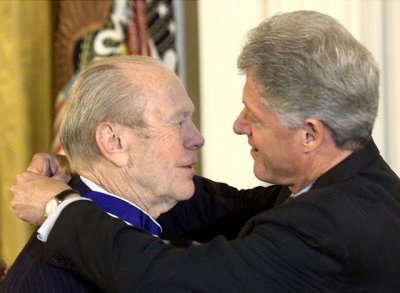Reader correspondence from the mailbag:
A while back, you posted an excellent column asking where the nationwide
black uprising was in response to the State-assisted suffering of black,
poor Hurricane Katrina victims.
Perhaps now you should write one asking where the upsurge of nationwide
Black rage is after the murder of Sean Bell by the NYPD death squads.
Not one riot, not one mass mobilization, not one general strike, not
anything. Pathetic.
When Martin Luther King was murdered, when Rodney King was brutalized by
LAPD thugs, this nation was on fire. These days, what's Black America
doing...waiting around for the goddamn' CBC, or Kweisi Mfume or somebody
to give 'em permission to rise up?
Hell of a good question. Is it related to the question of why there's no anti-war movement
worthy of the name?
Of course you could argue that there's no anti-war movement comparable to the Vietnam
period, because there's no draft, and so most people's ox simply isn't gored, actually or
prospectively, by the Iraq folly. That argument doesn't hold for the Sean Bell case, though -- it's pretty clear that NYPD has declared open season on black men. Declared it some time ago, and has been acting on it with impunity since. Every black man in New York is walking around wearing a target these days.
The generally despicable Bloomberg did at least react a little more intelligently, on
this occasion, than his gangsterish
predecessor Giuliani would have done. It's possible that that deflected some of the fury.
But I have a bad feeling that the core reason why there isn't more resistance either to
the war or to the police death squads is simply that the repression has worked -- worked on all the dimensions where it's been applied. The roll-back-the-sixties campaign which has driven so much of our politics for the last thirty years or so has been largely successful.
There's the very visible and concrete dimension of over-policing -- too many cops
running around, too many jails, way too many people in them, brutal mandatory sentencing right out of the Judge Jeffries playbook. Then of course there's the vast expansion of police powers and the reciprocal narrowing of civil liberties and privacy. On top of that is the ideological offensive -- the terrorist scare, the moral panic du jour about child molesters, Internet predators, carjackers, etc. -- all the bogeys that persuade people to embrace the whips and chains of their prison-house.
Finally, I think that in spite of all the cliches about our "polarized" political culture, the fact is that elite consensus is really quite strong, thorough-going, and almost universally agreed-upon. All the shouting, red-faced popinjays on TV, and their spittle-spewing rants about feminazis, scheming liberals, surrender monkeys and so on, ultimately reinforce, by exaggeration, core principles of that consensus; and the violence of the ranters' language and demeanor is just show business. Violence sells; Bill O'Reilly is the modern equivalent of a bear-baiting, and as with a modern execution, he's a pale, paltry shadow, comparatively poor in entertainment value, of the real good old Renaissance original. All talk and no action, like a liberal Protestant church service.
As for the political parties -- the frenzy of elections is pure factional struggle, a contention among indistinguishable gangs of opportunists for the spoils of office. The various slogans they deploy, as they pursue the same brass ring with the same strategies, are like street gang colors -- ball caps from different, arbitrarily chosen
teams, worn so you can tell the contenders apart.
When our rulers are undivided, it's much harder for us to gain any traction against them. Looking back at the Sixties, I think we can see that the elite consensus that dominated the immediate postwar period (I mean World War Two, kids) had rather broken down. We seen, or sensed, our opportunity, and we took it. But no such opportunity exists now, and so our rulers have us boxed up but good.
I don't imagine that's the end of the story. I don't think history is over, not quite yet, and there are still a lot of us and not many of them -- in fact, there are fewer and fewer of them, every day, compared to the more and more there are of us. That's the strategic picture. But there's no denying that just at the moment, the tactical picture is pretty bad, and our troops are mostly pretty discouraged.







 File this under
"almost, pal,
but no cigar":
this bright young spark
Micah Zenko, a grad student at Brandeis and "research associate" in Harvard's
Kennedy School,
File this under
"almost, pal,
but no cigar":
this bright young spark
Micah Zenko, a grad student at Brandeis and "research associate" in Harvard's
Kennedy School,
 Sweetheart of Daily Kos Barbara Boxer has sinned against the Israel lobby,
but seems to have done her penance willingly. According to
Sweetheart of Daily Kos Barbara Boxer has sinned against the Israel lobby,
but seems to have done her penance willingly. According to 